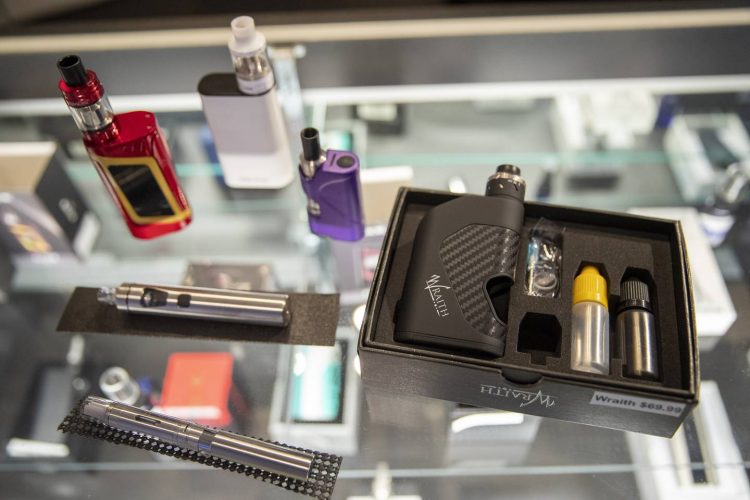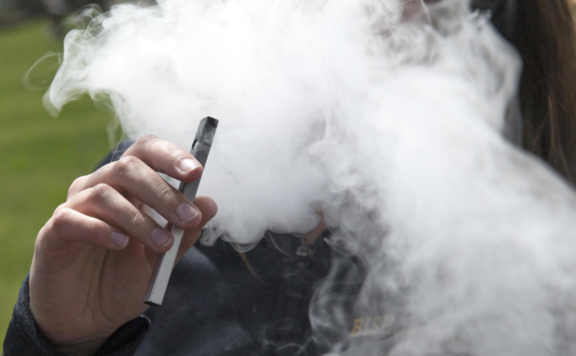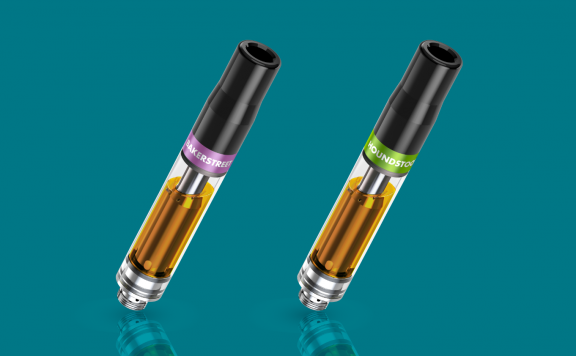Gov. Mike Dunleavy of Alaska blocked a piece of legislation which includes vaping tax last week that would have increased the state’s tobacco purchase age from 19 to 21 as well as placed an e-cigarette tax on the entire state because he believed it was too expensive.
The governor is only able to veto specific monetary amounts from measures that make appropriations or whole pieces of legislation; he cannot veto policy provisions from legislation that has already been approved by the Legislature. The tobacco age rise and the new vaping tax could not be separated, therefore Dunleavy was forced to veto the entire package, he wrote in a letter justifying his first veto of a bill in over three years.
Senate Bill 45 was sponsored by Sen. Gary Stevens, a Republican from Kodiak, to forbid youth from using either conventional cigarettes or electronic cigarettes. The law was approved with overwhelming unanimous support on the frantic final day of the parliamentary session, 31-9 in the House and 18-2 in the Senate.
2 million middle and high school students in the United States reported using e-cigarettes in the previous 30 days, according to the U.S. Food and Drug Administration, making them an “ongoing concern.” In a study published in 2020, the U.S. surgeon general stated that additional research was required to evaluate whether or not e-cigarettes assist smokers in quitting. The FDA has not authorized vaping as a technique to give up smoking.
The bill’s wholesale tax rate was settled at 35% after debates about its scale in the state Capitol; this is less than half the state tax rate on many other tobacco products. Earlier, the Alaska Department of Revenue had approximated that a 25% tax on e-cigarettes would bring in more than $1.2 million annually for the state.
Stevens claimed that Dunleavy had forewarned him that the governor would veto the bill if the vaping tax rate exceeded 25%. The governor’s administration acknowledged that was the reason Dunleavy overturned it.
Leading e-cigarette producer Juul Labs joined vaping trade associations in criticizing the proposed statewide tax, claiming that it would encourage nicotine consumers to use more dangerous tobacco products. On social media, a representative of the vaping industry applauded Dunleavy’s decision to deny the tax.
The bill, which effectively introduced the 35% tax rate, was carried out by Democratic Representative Andy Josephson of Anchorage. Dunleavy’s selection astounded him.
On Friday, Josephson stated, “I’m floored. “I believe we should override that veto.”
To overturn the governor’s veto of a law, two-thirds of legislators must vote in unison within five days of their first meeting. However, in order to do that, the Legislature would need to call a special sitting since its second regular session has ended.
The veto could result in lost federal funding: The state Department of Health reports that federally required tobacco-age compliance tests will begin on January 1. The state might forfeit substance-abuse block grants if it is discovered that more than 20% of local stores are not following the federal requirement. That would amount to up to 10% of Alaska’s $6.4 million budget for the current fiscal year.
As stated by Clinton Bennett, a representative for the Department of Health, “Under Alaska law, the state is not statutorily required to enforce the federal minimum age requirement, but retailers should comply with the federal minimum legal age to purchase tobacco and nicotine products.” The state will keep informing businesses about the modification to the federal age restrictions.






